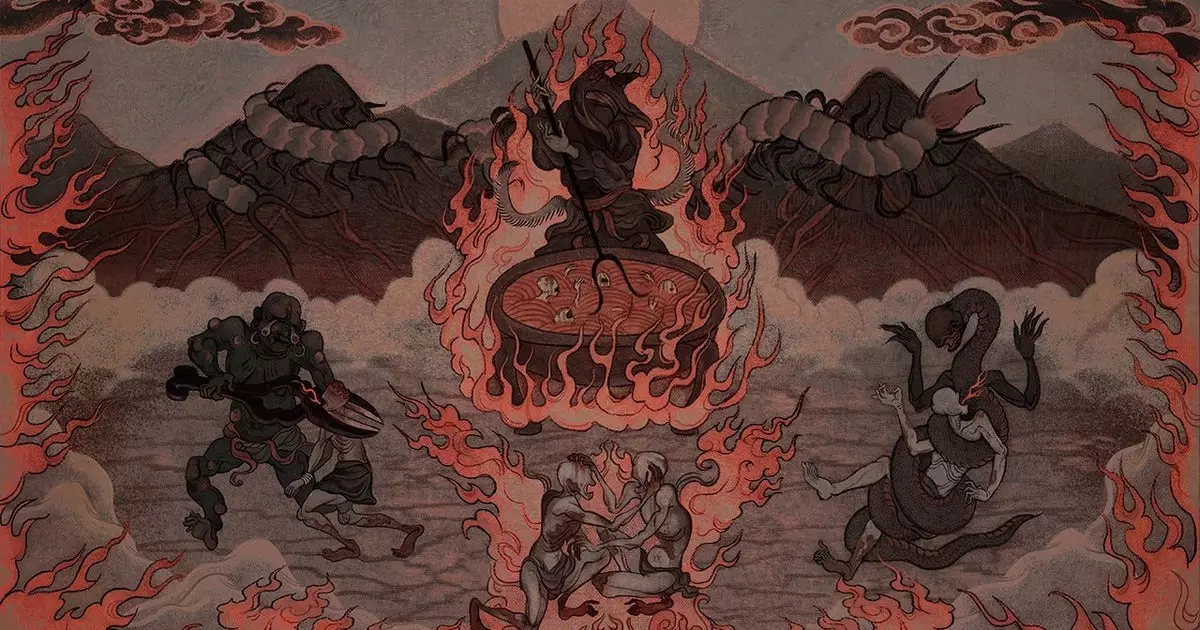In the vast and often monotonous realm of indie horror gaming, “Labyrinth of the Demon King” emerges as a visceral concoction, drawing heavily from the darkest corners of the genre, reminiscent of classics like “Silent Hill” and “Amnesia: The Dark Descent.” This game weaves an intricate tapestry of fear and desperation through its distinctive mechanics and harrowing atmosphere. After playing through its nuances, it is clear that this title offers players a haunting immersion unlike any other—though, admittedly, not without significant frustrations along the way.
Set against the backdrop of a mythical feudal Japan, the game plunges players into an unforgiving environment where danger lurks in every shadow. The objective revolves around unmasking a sinister yokai responsible for the betrayal of a prominent lord. This narrative drive is not merely a quest for vengeance; it embodies a broader commentary on survival in a world overflowing with malice and unpredictability. The protagonist finds themselves ensnared within a labyrinthine dwelling, teeming with grotesque creatures, challenging not just their physical endurance but their psychological fortitude.
The Unsettling Encounter with the Filthbastards
One standout feature of “Labyrinth of the Demon King” is its grotesque enemy design—namely, the so-called ‘filthbastards.’ These grotesque entities are not just obstacles but representations of the decayed atmosphere of the game. They are described as “bloated” and “whispering,” embodying a form of horror that transcends mere visuals. Engaging with these creatures invokes a primal fear: the fear of being overwhelmed by an unseen force. The enemies are grotesquely fascinating, yet unnerving enough to keep players on high alert.
While attempting to navigate this house of horrors, players face an array of grim weapons and tools. The protagonist’s initial arsenal—consisting of a bottle of sake, threadbare bandages, and a katana that is more akin to a stick of lichen—is a stark reminder of their vulnerability. The choice to invest in a broken katana reinforces the game’s commitment to realism; every action, every tool, carries a weight that resonates deeply with those familiar with survival horror mechanics. The necessity to free a blacksmith sealed within a pantry not only showcases the absurdity of the situation but also the ingenuity required to progress.
Mechanics That Frustrate and Fascinate
The gameplay mechanics in “Labyrinth of the Demon King” elicit a mixed response. The stamina-based combat system, drawing from the legacy of From Software’s earlier RPGs, adds an intense layer of strategy to encounters. However, the sluggish movement can be frustrating, completely at odds with the frenetic pace typically expected in horror genres. Herein lies a duality: the intentional lethargy serves to amplify the tension, plunging the player into a sense of hopelessness that mirrors the protagonist’s plight. Yet, this same mechanic often leads to discontent; the player may find themselves yearning for quicker reflexes in moments of imminent danger.
The setting is perpetually shrouded in dreadful ambiance, from the dilapidated rooms filled with whispering torments to cleverly hidden interactive elements like cupboards and crates. Players often find themselves stomping insects hidden within crates, a seemingly mundane action that ironically underscores their hunt for survival. The mapping of the environment marked by an array of locked doors and veiled threats contributes to a palpable sense of unease, mirroring the frustrating exploration mechanics of yesteryears in survival horror.
A Love Letter to Classic Horror
What stands out about “Labyrinth of the Demon King” is its unrelenting dedication to evoking the essence of classic horror. Drenched in an atmosphere reminiscent of the PS1 era, it successfully conjures feelings of nostalgia tempered by a renewed urgency. The clunky camera angles and low-fi aesthetic might repel some players, yet for others, it offers a refreshing return to form.
This game boldly leans into its flaws—the sluggish pace, the cryptic designs—transforming them from detractions into integral components that enhance the chilling experience. The overall vibe might be likened to putting one’s eye to a plughole, revealing glimpses of a broken world shrouded in mystery and darkness. The game’s developers have crafted an engrossing nightmare that dares players to confront their fears, an unsettling journey that ultimately leaves lasting imprints on the psyche.
As such, “Labyrinth of the Demon King” transcends the mere act of gaming; it becomes an exploration of darkness both within and without, urging players to tread carefully as they navigate its unnerving labyrinthine corridors.


Leave a Reply